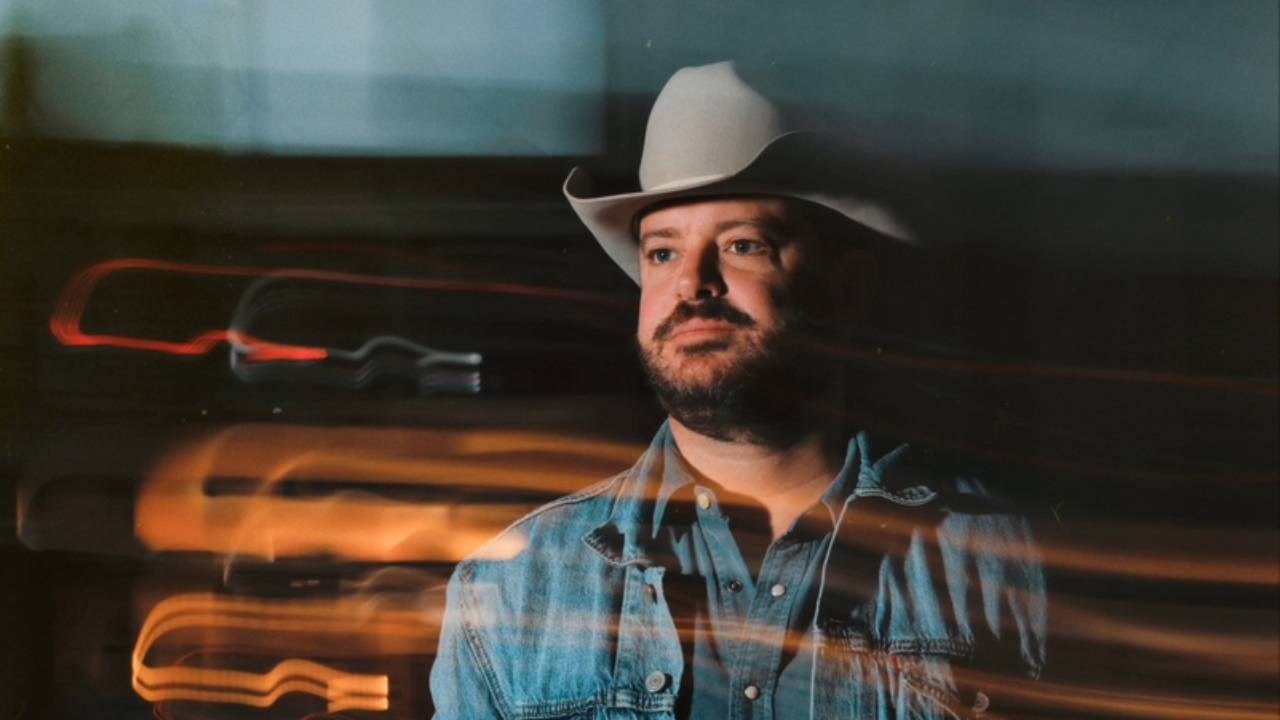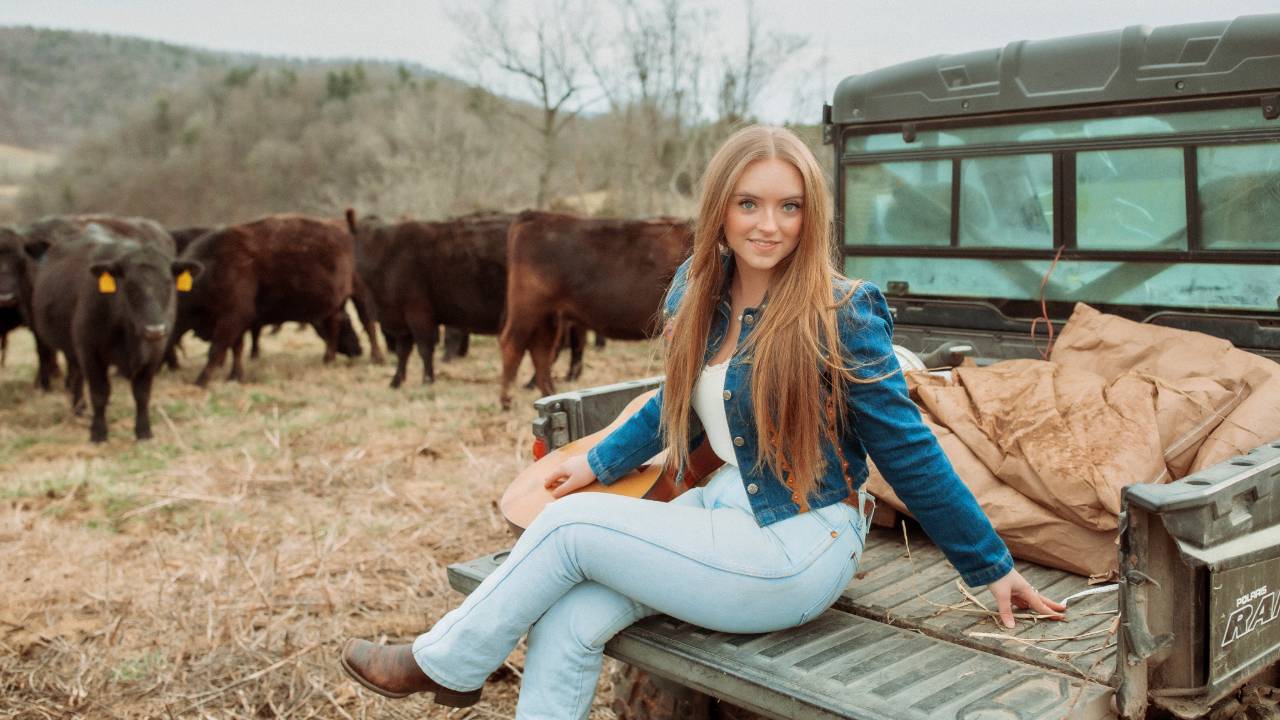Alan Jackson's Garage: A Guided Tour

Alan Jackson offers a personal tour of his car collection when this week's episode of CMT Insider debuts Saturday (Dec. 18) at 1:30 p.m. ET/PT.
A hatless Alan Jackson enters the room, undetected by the television crew who are busy setting up lights. He watches as the small video army transforms his garage office into a maze of cameras, tripods and cables. Not one who normally enjoys interviews, he looks relaxed in his brown shirt and torn jeans.
"Hi, Katie," he says with a warm smile to CMT Insider host Katie Cook. "We got coffee over there." It's 7:30 in the morning and everyone is a little groggy.
"Do you need some?" Cook asks.
"Nah, I've been up for hours, " he drawls.
It shouldn't surprise anyone that this superstar doesn't rest on his laurels. Jackson has sold over 43 million albums and left his mark on country music as both a singer and a songwriter. In turn, the music business has been good to this self-professed "writer of simple songs." Very good.
We're in his garage and while that might sound like a grungy, foul-smelling place to do an interview, it's nicer than most people's homes. And bigger. The V-shaped building contains 10 cars and a 1958 Harley-Davidson Panhead down one corridor alone. The other section houses four more cars and a small plane. In the middle is an open area called "the office," complete with a Harley-Davidson pool table, a coffee table and four leather chairs. Custom-built cabinetry lines the back walls, filled with every kind of knickknack (from Hot Wheels cars to Andy Griffith memorabilia). Some kind of metal road sign or picture covers any remaining surface.
Jackson's "desk" carries the car theme even further. It's the front of an old red Ford pickup truck, provided by his sister and brother-in-law. A "Yee Haw" license plate is beneath the grill, and you can even see the wheel wells on the sides.
"This was actually my first Fan Fair booth," he says proudly. "They made it for me, and I stood behind it and signed autographs that first year. And then I made it into a desk for the house after that."
Once seated for the interview, someone tells him to put on a hat. A khaki cap with a fish appears, and he begrudgingly puts it on. The stylists and producer seem happy, so Cook begins.
"Where and when do you do most of your writing?" she asks.
"Just different places," Jackson says. "It's more like when my mind's empty, you know? I wake up in the morning, and if I lay in bed and don't get up, and I'm just sitting there kind of blank, you know, sometimes melodies or ideas will come to me. Just the other day, I was out riding on one of the [golf] carts out here. I wasn't even thinking about writing. I'd just finished an album [What I Do]. I was tired of thinking about it. And I just started singing this chorus and it sounded pretty good, so I went in and put it down so I wouldn't forget it."
These days, technology helps Jackson remember melodies for his new songs.
"I started carrying this little digital pencil type recorder, so I try to keep that handy," he says, leaning back in his chair. "I've forgotten a lot of good melodies. It's melodies you forget, not so much the hook of the song. That melody, man, it's amazing how quick it will go away."
Jackson always has a collection of unfinished songs, although he chuckles, "Usually if they're not finished, they're not worth finishing. You get excited about an idea, then come back to it a day later and it wasn't what you thought it was. You just drank too much coffee that day."
His wife, Denise, is usually the first person to hear the new songs.
"I'll play them for her because she'll try and be more honest," he explains. Looking past Cook to his wife in the back of the room, he adds, "I play them for my girls, too."
"Do you think they might follow in your footsteps?" Cook asks. "And would you be OK with that?"
"I'm OK with anything they want to do as long as it's legal," Jackson says. "I don't feel like parents should push their children in any direction. For a while there, they were all taking piano lessons, and they were all really good. And they got tired of it, and we got bummed out that they wanted to quit, but I told my wife, you know, 'I never had a lesson in my life. I didn't pick up the guitar until I was 16 years old. They've got plenty of time to start.'"
Cook asks Jackson about his memories of writing his first song.
"I was probably 20 years old," he says. "Nah, I was probably older than that. Denise was a flight attendant, and she was based out of Charlotte [N.C.] for six months. That's the first time we hadn't really lived together. I was living in this little mobile home down on this lake in Georgia. I was working at this marina in the daytime. I would drive my boat to work and fish on the way back." He says almost wistfully, "It was pretty cool."
Asked whether he's considers himself a good judge of what makes a hit record, Jackson replies, "You never know. I think my taste is probably defined a little bit. I feel like I've been able to stay close to my fans because I'm still a fan. And that helps you pick songs that appeal to people. I don't know. It's a mystery to me. If I knew all the ingredients, I'd sell them."
If he could sell that, he might buy even more cars. There's a green Hummer with huge tires. "To make it look even more aggressive," Jackson says. Less aggressive is the pink Jeep with the striped canopy top in the corner.
"This is a Jeep I gave Denise," he says, placing his hand on the hood. "It's a 1960 Willis. They came in pink or turquoise, and they were 2-wheel drive. They were trying to get away from their military image. I call it her Barbie Jeep!"
His collection includes a wide range of years and models. But they're all kept in pristine condition and driven regularly. One day you could spot Jackson in his red 1968 Shelby GT-500 convertible Mustang. Or in his black 1957 Porsche Speedster.
Parked side-by-side are a 1928 Stutz Black Hawk Boattail Speedster and a 1929 Bentley 0.5 liter Le Mans.
"How fast will this go?" Cook asks, gesturing to the Stutz.
He thinks for a moment, "Oh, probably around 80, but you wouldn't want to ride in it that fast. It's pretty comfortable at 50 or 60."
As an ex-mechanic, Jackson takes an active role in restoring these beauties. A yellow 1957 Chevy required a lot of work.
"It was a basket case when I got it," he admits. "Pretty much a rusty shell, not much left, and we totally restored it back to the original color and upholstery."
Next to the Chevy is a shiny red 1977 Ford Bronco.
"That was one of the first vehicles I bought after I started making a little money," he explains. "I've had it longer than any of these in the garage. We've done a lot of work to it. I'll show you." Jackson raises the heavy hood to reveal an immaculate engine.
"It's so clean!" Cook says. "Are you one of those guys like if a bird poops on the car you freak out?"
"Nah," he says, waving his hand. "I don't care. My kids come in here and play. They climb in and out of them. The only car I really have a personal attachment to is that old Thunderbird. The rest of them are just cars."
That "personal attachment" is a white 1955 T-bird convertible, the first year Ford made the model.
"I bought this car when I was 15 years old," he says. "I'd been working since I was 12 to save up to buy a car. It's all I cared about. I bought it for $3,200. I drove it for two or three years in high school, and Denise and I dated in it."
Cook looks the car over before asking, "There's no backseat. But you two were dating?"
"That wasn't a problem. It has an adjustable steering wheel, " he says with a wink. "And no console. I'd make it go sometime without the top. And that was pretty scary -- go parking without the top on."
"The car or her?" Cook inquires.
Laughing, he admits, "Well, it might be both -- depending on how it worked out."





